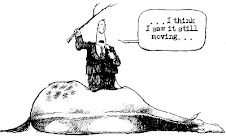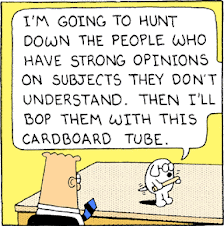The fortunes of the American economy have grown so alarming and the pace of the decline so swift that economists are now straining to describe where events are headed, dusting off a word that has not been invoked since the 1940s: depression.
Economists are not making comparisons with the Great Depression of the 1930s, when the unemployment rate reached 25 percent. Current conditions are not even as poor as during the twin recessions of the 1980s, when unemployment exceeded 10 percent, though many experts assert this downturn is on track to be significantly worse.
Rather, economists are using the word depression — a subjective term with no academic definition — to describe a condition of broad and extreme economic distress that remains stubbornly in place for much longer than a typical downturn.
This is more than a matter of semantics. As the government determines its spending plans, readying another infusion of cash for troubled banks while contemplating an additional bailout for the auto industry, the magnitude of those needs will hinge on the extent of the damage.
Mark Zandi, chief economist of Moody’s Economy.com, now places the odds of “a mild depression” at 25 percent, up from 15 percent three months ago. In that view, the unemployment rate would reach 10.5 percent by the end of 2011 — up from 7.6 percent at the end of January — average home prices would fall 20 percent on top of the 27 percent they have plunged already, and losses in the financial system would more than triple, to $3.7 trillion.
Allen Sinai, chief global economist at the research firm Decision Economics, sees a 20 percent chance of “a depressionlike possibility,” up from 15 percent a week ago.
“In the housing market, the financial system and the stock market, we’re already there,” Mr. Sinai said. “It is a depression.”
Yet, in drawing up the budget, the White House assumed the economy would expand by a robust 3.2 percent in 2010, with growth accelerating to 4 percent over the next three years.
“It’s a hope, a wing and a prayer,” Mr. Sinai said. “It’s a return to a sanguine view of the economy that is simply not justified.”
If, as is widely anticipated, the economy grows more slowly than the White House assumes, revenue will be lower, forcing the government to cut spending, raise taxes or run larger deficits.
Economists also criticized as unrealistically hopeful the assumptions by the Federal Reserve as it began so-called stress tests to gauge the health of the nation’s largest banks. In testimony, Ben S. Bernanke, the Fed chairman, said that the nation’s unemployment rate would most likely reach 8.8 percent next year.
“That forecast just doesn’t seem realistic,” said Dean Baker, co-director of the Center for Economic and Policy Research in Washington, “and I don’t think it helps the Fed’s credibility to make these sorts of forecasts right now.”
As federal regulators estimate potential losses at banks, the harshest assumptions they are testing entails the unemployment rate topping out at 10.3 percent — the highest level since 1983, but hardly the worst case.
By Mr. Baker’s reckoning, the unemployment rate may exceed 12 percent — the highest level since tracking began in 1948.
“We continue to see across-the-board numbers coming in worse than we expected,” Mr. Baker said.
By Mr. Zandi’s estimation, in the most likely case, the unemployment rate will reach 9.3 percent next year. The distress in the financial system, the job market and real estate have become inextricably intertwined.
As troubled banks remain hesitant to lend, even healthy companies are laying off workers. As more Americans lose jobs, they are cutting spending, depriving businesses of revenue, and falling behind on house, car and credit card payments, multiplying losses in the financial system. As more homes land in foreclosure and would-be buyers fail to secure mortgages, housing prices fall further, adding to the losses of the banks — a downward spiral.
Many economists expect that the labor data to be released next Friday will show that as many as 700,000 jobs disappeared in February, lifting the unemployment rate near 8 percent and pushing total job losses to more than four million since the recession began in December 2007.
Given the brutal forces at play, some experts question the administration’s decision to publicize the bank stress tests, as opposed to conducting them quietly.
“It invited the interpretation that this was the beginning of triage for the banks, that we were going to start lining them up and shooting them,” said Alan S. Blinder, a former vice chairman of the Federal Reserve and a professor at Princeton. “There are some things in the bank supervisor role that you just keep secret.”
Others argue that the tests could sow needed assurance. “The stress test could create transparency,” said Alan D. Levenson, chief economist at T. Rowe Price in Baltimore.
As the gruesome data accumulates, this much is already clear: Transparency is not for the squeamish.
Mr. Levenson noted that the weakening economy was destroying demand for goods and services even faster than the $787 billion stimulus program could replace it.
E - The time to put aside the partisan bull is here... without the additional gov. spending and projects to keep millions employed, spending, paying taxes, and off the unemployment rolls pulling money from the system, the upcoming years would be worse than anything we have seen in our lifetime. It still may be.





